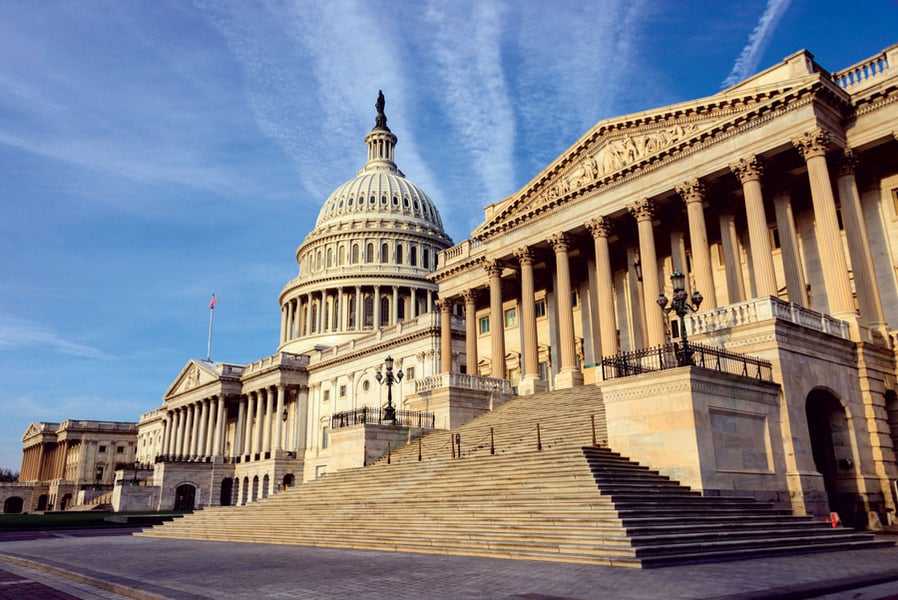

The House Ways and Means Committee approved legislation Thursday that would require small businesses to provide retirement plans for their workers.
The Democratic majority on the House tax-writing panel advanced the measure on a mostly party-line vote, 22-20, that introduced partisan tension over retirement savings policy, an issue that had been one of the few to draw wide bipartisan support. Two Democrats joined all committee Republicans in opposing the retirement provisions.
The legislation would require employers that have been in business for at least two years and have five or more employees but don’t offer retirement plans to enroll their workers automatically in individual retirement accounts or 401(k)-type plans. The measure offers a tax credit to offset costs but also imposes an excise tax on businesses that don’t set up auto retirement savings programs.
Another provision would make the Saver’s Credit refundable, helping people who owe no income taxes to build a retirement nest egg. The amount of the credit would be deposited directly into a tax-favored retirement account, such as a Roth IRA.
The bill specifies that the retirement accounts must deduct 6% of wages from paychecks, rising to 10% over several years, and sets target-date funds as the default investment. It also provides a safe harbor for existing state-level auto-IRA programs.
The retirement legislation is part of a larger package — including provisions on paid family and medical leave and Medicare coverage expansion, among others — that comprises the committee’s contribution to a $3.5 trillion budget bill working its way through Congress.
It’s not clear whether the Senate Finance Committee will include an auto-IRA provision in its budget reconciliation legislation.
Ways and Means Chairman Richard Neal, D-Mass., has long championed auto-IRAs.
“Nearly one-third of Americans have no retirement savings at all, and about half of working-age households risk being unable to maintain their current standard of living after retiring,” Neal said during committee deliberations. “We know that having an employer-sponsored retirement plan is key to preparing for retirement, but nearly half of American private-sector employees work for an employer that doesn’t offer a retirement plan.”
The bill drew support from the American Retirement Association, which cited estimates showing the bill would add 62 million retirement savers and $7 trillion in retirement savings, and the Insured Retirement Institute, which noted that the bill requires automatic plans to offer accounts of a certain size the option of taking a distribution through an annuity.
Republicans criticized the measure for placing a regulatory burden on small businesses. It’s an argument they’ve made for years as they resisted Neal’s previous attempts to advance an auto-IRA bill.
On Thursday, Rep. Kevin Brady, R-Texas and ranking member of the committee, contrasted the partisan rancor with the bipartisan support for SECURE 2.0 retirement savings legislation the panel approved earlier in the year.
“It was the intention of every member on this committee to get SECURE 2.0 across the finish line and signed into law by year-end,” Brady said. “Instead, with this bill, we have decidedly taken a different approach, and a partisan approach. Main Street now faces an onerous new mandate from Washington, and a tax penalty if you don’t comply.”
The tension over the auto-IRA bill would not undermine other retirement policy efforts, Neal said.
“I want to assure the ranking member, based upon the good work that we’ve done in the atmosphere of retirement savings, that it is not my intention to allow what I am suggesting here to get in the way and or compromise what we are about to do on the House floor with Retirement 2.0,” Neal said.
But the brittle politics surrounding the massive budget bill, which will fund Biden administration social spending priorities, were apparent during the Ways and Means Committee meeting.
Rep. Stephanie Murphy, D-Fla., said she would oppose the retirement provisions and all other subtitles because they’re being rolled out quickly on a piecemeal basis to meet a mid-September deadline for the budget measure, the Build Back Better Act. Many of the subtitles — including the one that contains tax proposals to pay for the spending — have yet to be released.
“So as we begin the multiday markup of this historic legislation, I don’t know how much we’re spending, how much we’re raising, how we’re spending some of the money, and how we’re raising any of the money,” Murphy said.
The other Democrat who voted against the auto-IRA legislation was Rep. Ron Kind of Wisconsin.
Several committees are writing the legislation that will make up the $3.5 trillion budget bill that is on a course to be approved with only Democratic votes in order to sidestep a Republican filibuster in the Senate. But there are rumblings of opposition from moderate House and Senate Democrats.
Bloomberg News contributed to this report.

Relationships are key to our business but advisors are often slow to engage in specific activities designed to foster them.

Whichever path you go down, act now while you're still in control.

Pro-bitcoin professionals, however, say the cryptocurrency has ushered in change.

“LPL has evolved significantly over the last decade and still wants to scale up,” says one industry executive.

Survey findings from the Nationwide Retirement Institute offers pearls of planning wisdom from 60- to 65-year-olds, as well as insights into concerns.
Streamline your outreach with Aidentified's AI-driven solutions
This season’s market volatility: Positioning for rate relief, income growth and the AI rebound
